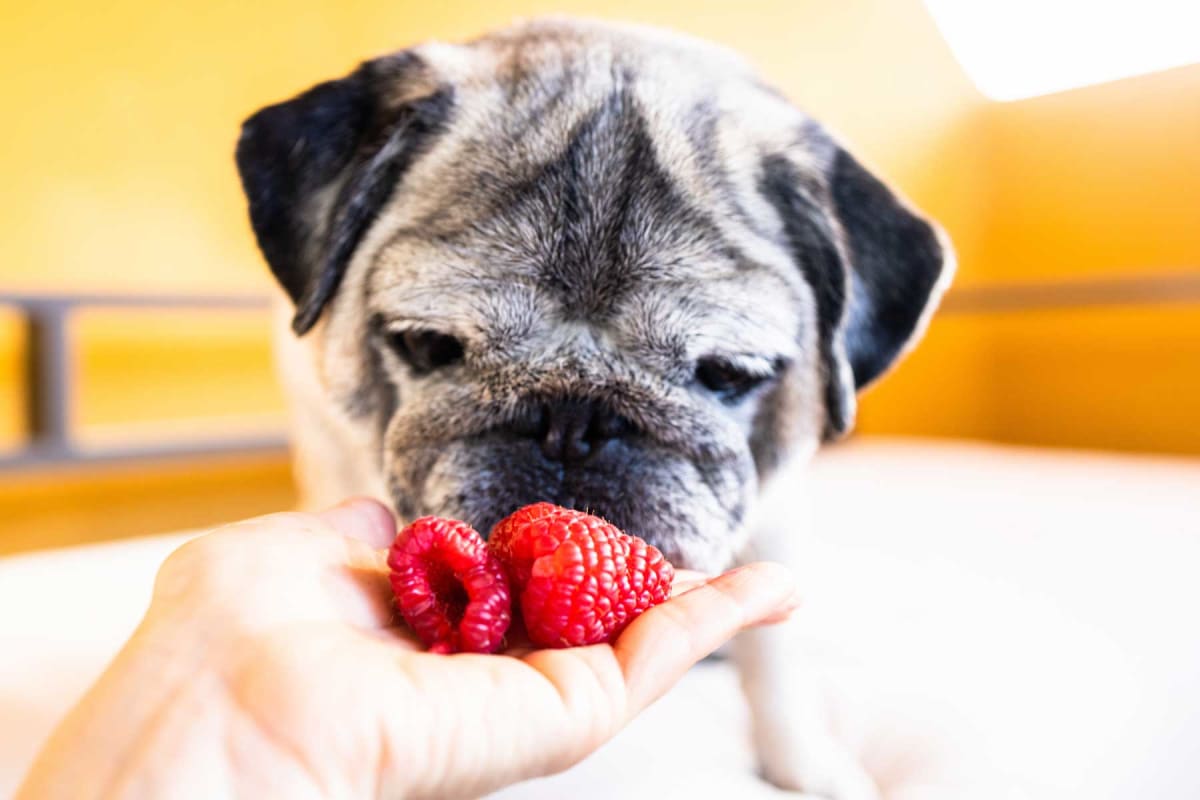
Can dogs eat raspberries?
Can dogs eat raspberries?
Can dogs have raspberries?
If you've ever been enjoying a bowl of fresh raspberries and noticed your furry friend giving you those irresistible puppy eyes, you might be wondering if sharing is safe. The good news is yes—dogs can eat raspberries! However, as with many human foods, there are important guidelines to follow.
Raspberries are a superfruit that comes with numerous health benefits, and they're safe for dogs to eat when given in moderation. Let's dive deeper into everything you need to know about feeding these ruby-red treats to your canine companion.
Are raspberries good for dogs?
Although dogs don't necessarily need fruit in their diet because their nutritional needs are normally met through high-quality dog food, raspberries can provide an extra nutritional boost. These tiny berries pack quite a punch when it comes to health benefits!
Fiber: Raspberries are high in fiber, which can aid in digestion and help maintain a healthy gut.
Antioxidants: These berries are rich in antioxidants, which can help fight free radicals and potentially reduce the risk of certain diseases.
Vitamins & minerals: Raspberries contain loads of nutrients, including vitamin C, K, B-complex, magnesium manganese, potassium, and iron, all of which contribute to various aspects of your dog's health.
Low in calories: With their low calorie content, raspberries can be a great alternative to higher calorie treats for dogs requiring weight management.
Senior dogs especially can benefit from the anti-inflammatory properties of raspberries, which may help with aging joints and reduce arthritic pain.
When are raspberries bad for dogs?
Despite their benefits, dogs should only eat raspberries in moderation due to a few potential concerns:
Too many raspberries can cause digestive issues in dogs, including upset stomach, vomiting, or diarrhea. You might also notice red-tinged seeds in your dog's stool after eating raspberries, but this is generally not a cause for concern.
Raspberries contain small amounts of natural xylitol. While xylitol is safe for humans, it can be extremely toxic to dogs. That said, these tasty berries are safe in moderation, so as long as you only offer them to your pup in small portions as an occasional treat, there is no cause for alarm.
How to safely feed raspberries to your dog
Follow these guidelines to make raspberries a safe and enjoyable treat for your four-legged friend:
Always wash raspberries thoroughly to remove any pesticides or contaminants.
Only offer fresh or frozen plain raspberries—never canned, sweetened, or processed options.
Remove any stems or leaves on the berries.
For very small dogs, consider cutting raspberries into smaller pieces to prevent choking hazards.
When introducing raspberries to your dog for the first time, start with just one or two berries and observe for any adverse reactions before gradually increasing the amount.
While fresh raspberries are completely safe, you should always avoid giving your dog raspberry products like jams, canned raspberries, or sweetened varieties. These contain high amounts of sugar which can lead to diabetes, obesity, and tooth decay.
How many raspberries can I give my dog?
The right serving size depends on your dog's size. As a general guideline:
Small dogs (less than 20 pounds): 1 to 2 raspberries
Medium-sized dogs: a few raspberries
Large dogs: a small handful (but still less than ½ cup)
Remember that treats of any kind, including raspberries, should only make up 10% of your dog's diet. The other 90% should come from a well-balanced dog food.

Other safe treat options
If your dog enjoys raspberries or if you're looking to add variety to their treat rotation, consider these other safe fruits for dogs:
Strawberries: Rich in fiber and vitamin C, as well as an enzyme that can help whiten your dog's teeth
Blueberries: Packed with antioxidants and often considered a canine superfood
Blackberries: Offer similar benefits to raspberries
Watermelon (seedless): A hydrating treat for hot days
Apples (without seeds): Crunchy and refreshing
Berries to avoid
While many berries are safe, some are never safe for dogs:
Holly berries
Juniper berries
Mistletoe berries
Pokeweed berries
If you have berry plants in your garden, make sure they're fenced off from your pets, especially if they're varieties that aren't safe for canine consumption. When in doubt, always use caution and consult your vet before offering the fruit to your dog.